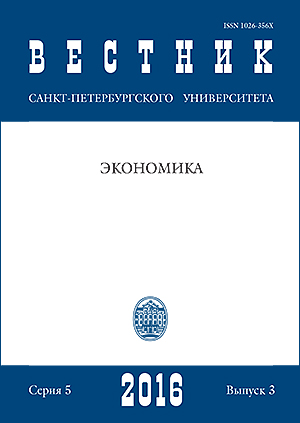Analyzing Process Acceptance with IT-Enabled Experimental Research
DOI:
https://doi.org/10.21638/11701/spbu05.2016.307Abstract
The positive results that are frequently associated with business process management, can only be achieved through triggering of the process by its users and the correct execution by the process operators. Unfortunately, business scandals in various domains have shown that companies, or rather the process operating subjects, sometimes do not execute their processes according to given standards or do not use existing processes at all. This failure in process execution can lead not only to suboptimal performance but also to life threatening disasters. By circumvention of official channels, individuals within the company create shadow organizations. Thus, unofficial processes and shadow IT systems emerge, which run alongside the official organization. This in turn has several disadvantages, among others increased complexity and lack of transparency, compliance risks and higher costs.
It is, therefore, of crucial importance to understand, why people accept or dismiss official business processes. Basically, this question calls for an explorative empirical research approach. A possible way of investigation is field studies in business organizations. However, such a form of study is expensive, time-consuming and it is difficult to attract a sizeable number of qualified participants. Moreover, there are known methodical problems with empirical research that relies on questioning people about their own sphere of responsibility. In this paper, we suggest to proceed in a different way to determine
whether a process fits the end users. Our methodology is based on setting up process acceptance experiments in a crowdsourcing environment that allow for a more objective investigation at reduced time and cost, as compared to classical field studies. Refs 27. Figs 6. Tables 3.
Keywords:
process acceptance, business process management, measuring process acceptance, process acceptance testing, crowdsourcing environment
Downloads
References
References in Latin Alphabet
Translation of references in Russian into English
Downloads
Published
How to Cite
Issue
Section
License
Articles of the St Petersburg University Journal of Economic Studies are open access distributed under the terms of the License Agreement with Saint Petersburg State University, which permits to the authors unrestricted distribution and self-archiving free of charge.







